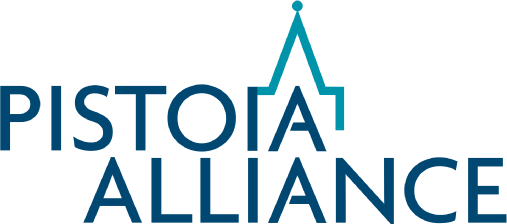Collaboration efforts will reduce manual burden of adverse event reporting, enable ethical AI use and accelerate innovation in drug safety monitoring
Boston, 23rd July 2025: The Pistoia Alliance, a global, not-for-profit alliance that advocates for greater collaboration in life sciences R&D, is launching two complementary initiatives to transform pharmacovigilance (PV) in response to growing member demand. A new dedicated AI in Safety & PV Community of Experts (CoE) will explore how to apply AI safely, ethically and effectively within pharmacovigilance workflows. While the Pharmacovigilance Systems & Processes Standards (PS²) project will establish a set of standard solution and integration requirements for PV systems to reduce duplicated effort and foster greater innovation in common PV workflows using AI. The PS² project has sponsorship and resourcing from Novo Nordisk, AbbVie, and Novartis. The Alliance is now seeking additional funding and expertise to support both new initiatives and calling on interested parties to submit their information.
Pharmaceutical companies are grappling with rising data volumes, with some individual PV teams handling upwards of one million adverse event reports annually. Regulations are also becoming stricter, mandating companies to monitor drug safety data across a wider range of sources, including social media, online forums, patient support programs and call center records. AI holds huge promise for automating the capture and analysis of PV data, but also poses significant risk around the reliability of AI-generated outputs. The AI in Safety & PV CoE will convene industry specialists to explore how AI can responsibly enhance drug safety monitoring, from automated adverse event extraction to causality assessment.
“AI is already reshaping early-stage R&D, but its use in pharmacovigilance demands a greater level of care and scrutiny. The consequences of errors in PV can more directly impact patients and lead to regulatory and reputational fallout. Therefore a risk-based approached on the use of AI is required and this new community will ensure AI adoption is grounded in ethical and technical best practice while maintaining regulatory compliance,” comments Thierry Escudier, Portfolio Lead at the Pistoia Alliance. “PV challenges are among the most cited concerns by our members, which is why we’ve launched these initiatives – marking the Alliance’s first move into the drug safety space. We’re now looking for life sciences and technology companies to provide funding and expertise so these initiatives can deliver practical solutions that will benefit the entire late-stage R&D ecosystem.”
The PS² project will define standardized software and integration requirements for PV systems, beginning with one of the most resource intensive PV workflows: case intake. The current PV software landscape is dominated by a small number of monolithic, hard-to-integrate systems, resulting in a fragmented, costly and innovation resistant ecosystem. Companies often resort to custom-building add-on modules and integrations, despite near-identical needs across organizations, leading to duplicated effort and spend. By establishing shared functional and interoperability standards, the PS² project will streamline system design, eliminate redundancy and accelerate innovation in PV technology.
“After almost 20 years in PV, I’ve seen first-hand how complex and costly today’s systems are. Everyone is trying to solve the same problem in isolation. The PS² project gives us a chance to change the game so PV teams can move beyond maintaining the foundation with basic automation and focus their energy on innovation driven by AI,” comments Marc Graber, Project Lead, The Pistoia Alliance. “Publishing the initial case intake standard is just the beginning. We need industry partners to help sustain and scale this work across the broader PV ecosystem in 2026 and beyond.”
“I am supporting this initiative because it paves the way for transformative progress in pharmacovigilance through standardization and innovation,” comments Thomas Kuckuk, Head Pharmacovigilance Systems Management at Novartis. “By fostering cross-industry collaboration and aligning requirements, we can channel investments into innovation, enhance interoperability, and ultimately deliver better outcomes for patients globally.”
“Aligning on clear pharmacovigilance standards for both data and workflows makes it seamless for our partners to deliver exactly what we need, when we need it,” adds Henrik Lynge, VP, Head of Architects & Strategy in Clinical Development at Novo Nordisk:
To find out more about membership, upcoming events, or to suggest project ideas, visit www.pistoiaalliance.org
About The Pistoia Alliance
The Pistoia Alliance is a global, not-for-profit members’ organization made up of life science companies, technology and service providers, publishers, and academic groups working to lower barriers to innovation in life science and healthcare R&D. It was conceived in 2007 and incorporated in 2009 by representatives of AstraZeneca, GSK, Novartis, and Pfizer who met at a conference in Pistoia, Italy. Its projects transform R&D through pre-competitive collaboration. It overcomes common R&D obstacles by identifying the root causes, developing standards and best practices, sharing pre-competitive data and knowledge, and implementing technology pilots. There are currently over 200 member companies; members collaborate on projects that generate significant value for the worldwide life sciences R&D community, using the Pistoia Alliance’s proven framework for open innovation.
Media Contacts:
Spark Communications
+44 207 436 0420 pistoiaalliance@sparkcomms.co.uk
Tanya Randall
The Pistoia Alliance
+44 7887 811332 tanya.randall@pistoiaalliance.org

